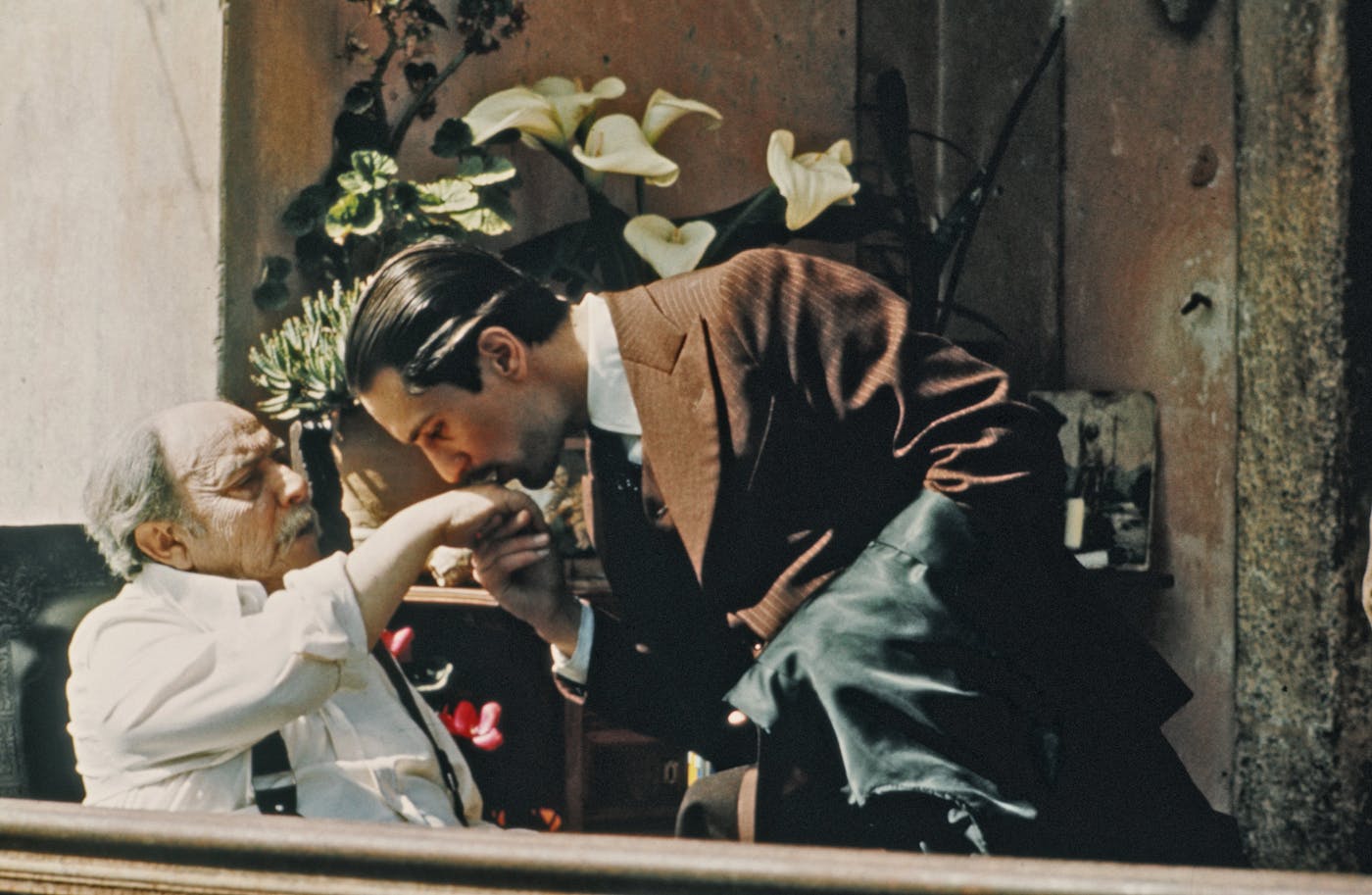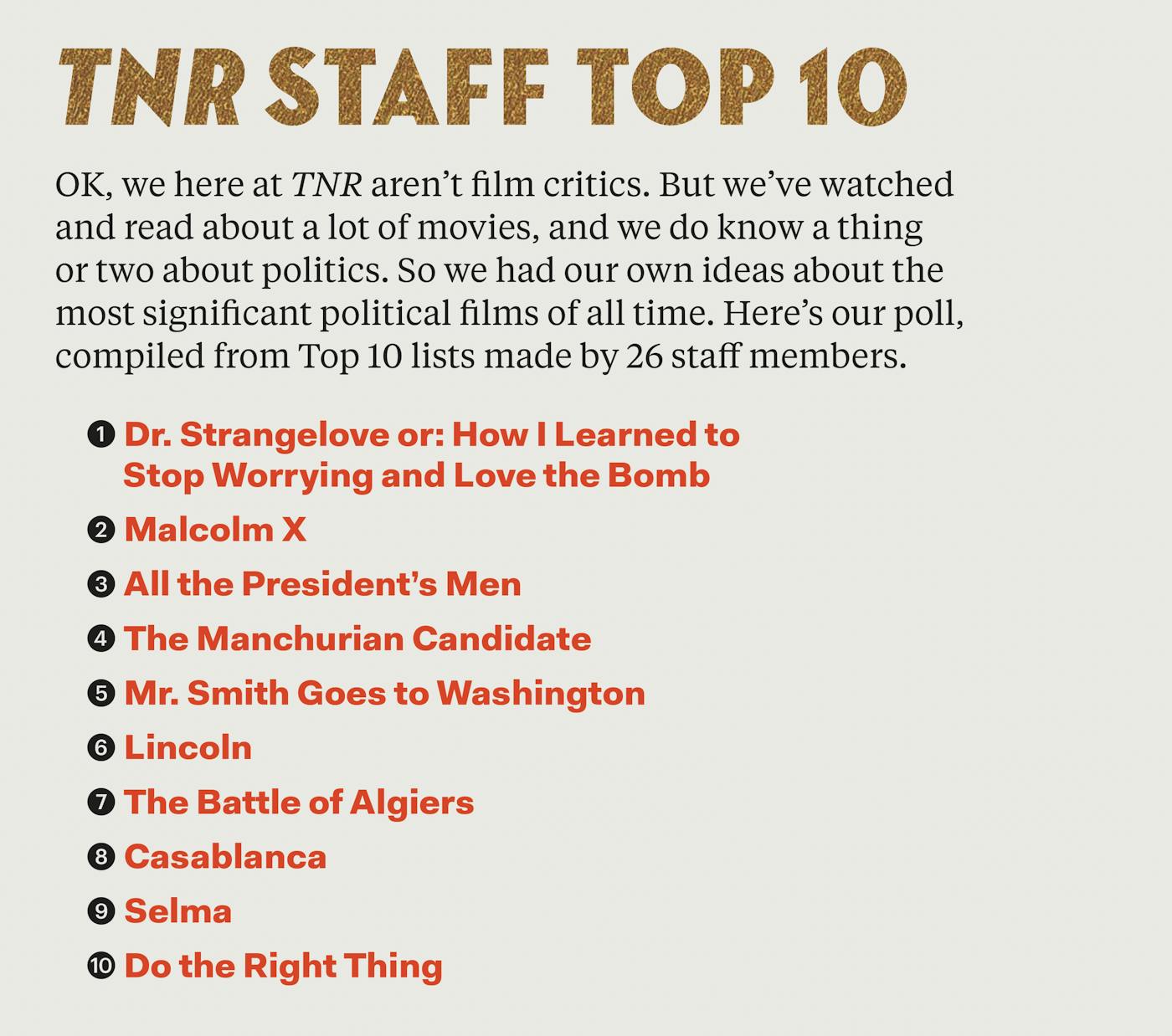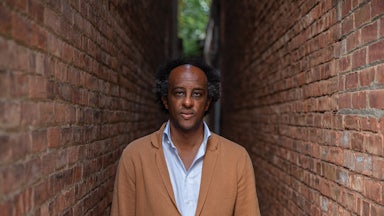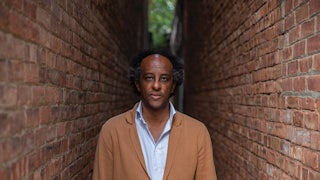Our critics didn’t list Apocalypse Now. They passed on classics like Chinatown and On the Waterfront, and declined to rank recent hits like Get Out and Parasite. Here are the films that our staff argues should have made the cut.
Casablanca (dir: Michael Curtiz, 1942) is a stirring allegory about America’s much-delayed entry into World War II that pretends to be little more than a melodrama about a love triangle sprinkled with a bit of foreign intrigue. Bogart represents a United States wary of entangling alliances, but in the end he chucks isolationism (and Ingrid Bergman!) to fight fascism. —Timothy Noah
Invasion of the Body Snatchers (dir: Don Siegel, 1956) captured 1950s fears of brainwashing, psychological manipulation, and soulless conformity. Set in a small town (the inferior 1978 remake was moved to San Francisco), the horror lies in watching loved ones and neighbors be transformed into alien pod people, who look the same but are now without emotions or free will. —Walter Shapiro
Seven Days in May (dir: John Frankenheimer, 1964) diagnosed the dangers of the far right and warned of its threat to liberal democracy. After the president signs a disarmament treaty with Russia, most of the Joint Chiefs of Staff plot a coup. The opening scene is Charlottesville and January 6 all in one. —Howery Pack
Black Panthers (dir: Agnès Varda, 1968) is the source almost every director uses when they want to show the Panthers. With shots of women chanting, “The revolution has come! Off the pigs!” Varda captured the spirit of resistance and the future of protest. —Melissa Gira Grant
The Discreet Charm of the Bourgeoisie (dir: Luis Buñuel, 1972) is the movie that Inception wishes it was: The stakes between the real and the dreamed are fiercely political, increasingly tangled, and simultaneously sad and hilarious. —Rowan Ricardo Phillips

The Godfather Part II (dir: Francis Ford Coppola, 1974) isn’t crafted as perfectly as The Godfather, but its canvas is broader, and its twin narratives—of Vito Corleone’s rise in the early twentieth century and of his son Michael’s decline through the late 1950s—are an enthralling meditation on why oppressed people seek power and how it corrupts them. —Timothy Noah
Nashville (dir: Robert Altman, 1975) People who think Nashville is a movie about country music also think The Brothers Karamazov is a novel about a family spat. Right up to the assassination of Barbara Jean, the political signals and metaphors are profound. —Michael Tomasky
Chinatown (dir: Roman Polanski, 1974) gave California water wars the noir treatment. What appears to be a hard-boiled detective story about infidelity and homicide turns out to be a battle for the West’s most precious resource. —Laura Marsh
Thelma and Louise (dir: Ridley Scott, 1991) exploded into the culture in the ’90s, interrogating rape and sexism and the U.S. justice system—and was one of the first movies I’d ever seen that put women’s friendship at its center. —Kirsten Denker
Bowling for Columbine (dir: Michael Moore, 2002) tried to convey the lunacy of America’s addiction to guns, in what would become an age of mass shootings. —Hafiz Rashid
Downfall (dir: Oliver Hirschbiegel, 2004) When people think of this movie today, they think only of the many (and often hilarious) parodies. That’s a shame. Berlin in April 1945 was probably as close as human civilization has ever come to hell on Earth, and Downfall captures it brilliantly. —Michael Tomasky
An Inconvenient Truth (dir: Davis Guggenheim, 2006) documents Al Gore’s effort to raise the alarm about climate change. “I need to move / I need to wake up,” Melissa Etheridge sings as the credits roll. —Melissa Rodman
Burn After Reading (dir: Ethan Coen and Joel Coen, 2008) imagines “a group of dunderheaded Americans who think they would benefit from a covert alliance with the Russian government.” What seemed a madcap premise in 2008 turned out to be, as Jeet Heer wrote in these pages, “singularly prophetic of the Trump era.” I hate the reason this film aged so well. —Jason Linkins
In the Loop (dir: Armando Iannucci, 2009) In most American political films, men of the people enter politics, encounter a venal and corrupt establishment, and ultimately thwart it. There are no heroes in this satire of the lead-up to the Iraq War: Every member of its transatlantic political and military establishment is unscrupulous, stupid, and/or immoral. It’s the anti–Mr. Smith Goes to Washington; no movie is as clear-eyed about the way politics actually works. —Alex Shephard
Margin Call (dir: J.C. Chandor, 2011) was the cultural counterpunch that millennials who were raised on The West Wing desperately needed—a snappy dramatization of the financial crisis that showed corporate hogwash and sheer self-interest are more than enough to make smart-sounding people crash the economy. —Heather Souvaine Horn







